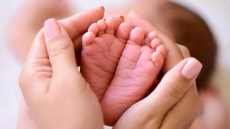Nearly 50 years after man's first steps on the Moon, researchers have discovered a way that may help astronauts spending prolonged time in space come back to Earth on more stable footing.
Orthostatic hypotension is the technical term for a temporary drop in blood pressure when a person stands up after sitting or lying down because blood rushes to the feet, away from the brain.
Dizziness or fainting due to changes in blood flow can occur after lengthy bed rest, among people with certain health disorders or in the case of astronauts, being in a low-gravity environment.
"One of the biggest problems since the inception of the manned space program has been that astronauts have fainted when they came down to Earth. The longer the time in a gravity-free environment space, the greater the risk," said Benjamin Levine, Professor at UT Southwestern Medical Center in the US.
"This problem has bedeviled the space program for a long time, but this condition is something ordinary people often experience as well," he said in the paper published in the Circulation: Journal of the American Heart Association.
The study included 12 astronauts (eight men and four women, aged 43-56) who spent about six months in space. All performed individualized endurance and resistance exercise training for up to two hours daily during space flight to prevent cardiovascular, bone and muscle deconditioning. They also received a saline infusion upon landing.
The astronauts' blood pressure was recorded with every heartbeat over each 24-hour period before, during and after their time in space.
The researchers found that there was minimal impact on their blood pressure during all phases of measurement and none of the astronauts in the study experienced dizziness or fainting during routine activities 24 hours after landing.
This is the first study to demonstrate that astronauts do not experience dizziness or fainting during routine activity after landing, as long as they participate in certain types of exercise training while in flight and receive IV fluids when they return to earth.
"What surprised me the most was how well the astronauts did after spending six months in space. I thought there would be frequent episodes of fainting when they returned to Earth, but they didn't have any," Levine said.
"It's compelling evidence of the effectiveness of the countermeasures -- the exercise regimen and fluid replenishment," he added.


